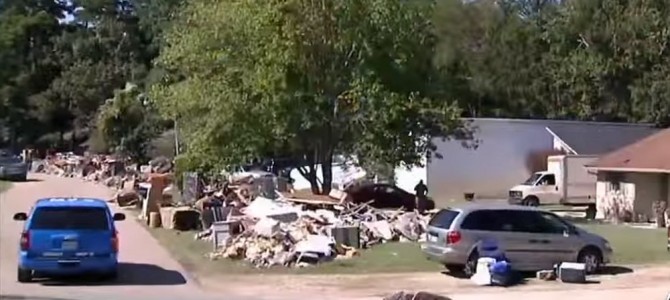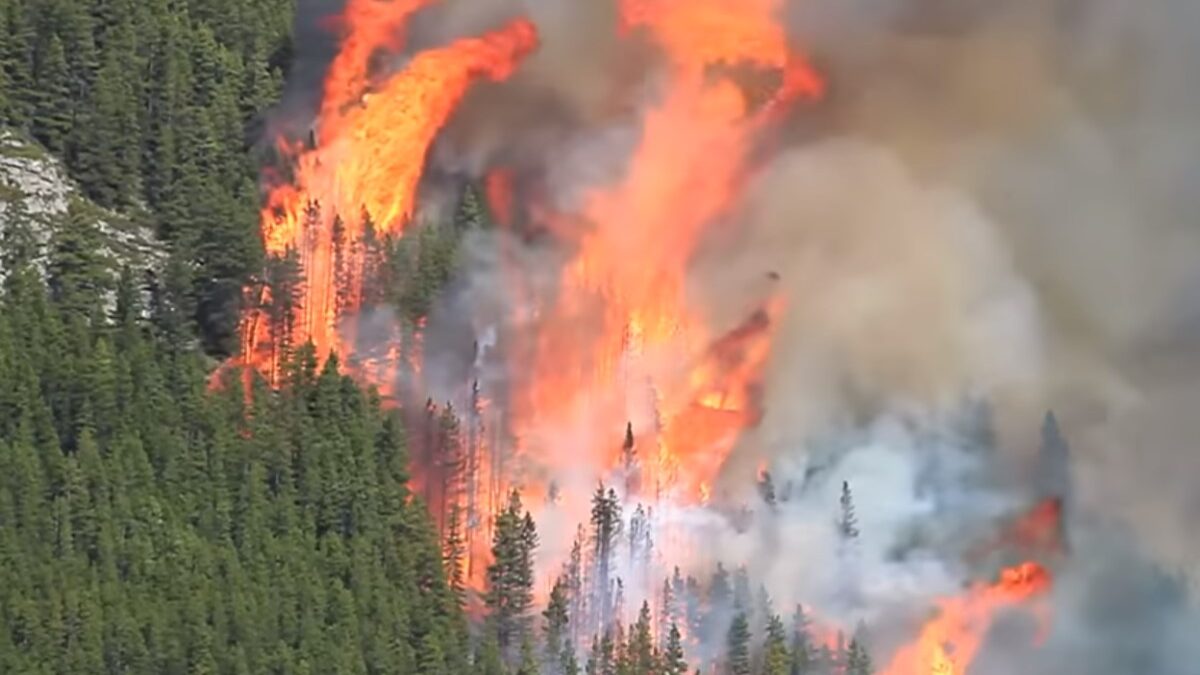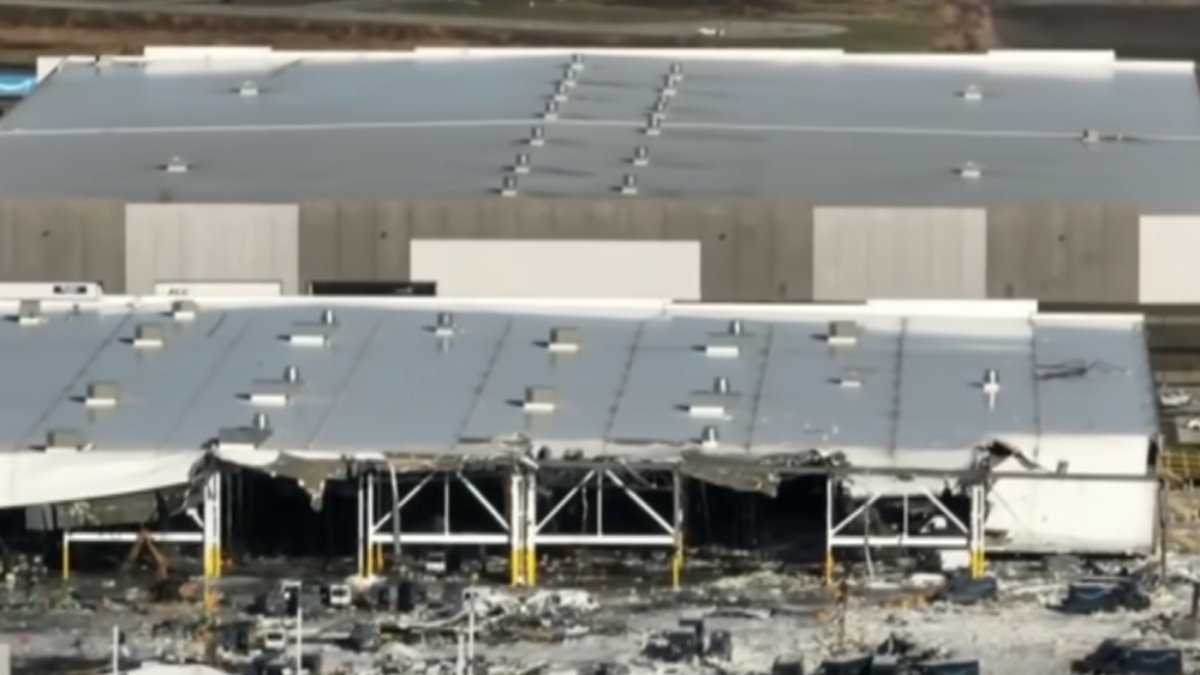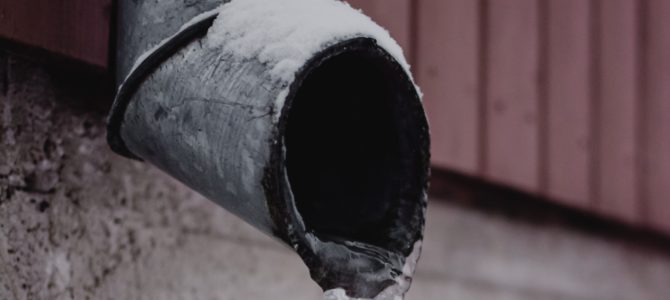
Last week, the most heinous flooding the nation has seen since Hurricane Sandy swept away a reported 60,000 homes. The press first ignored it, then argued about why they had ignored it. Lurid, shocking images got a bit of air time, with pictures of floating coffins and flooded-out cars. There are still thousands living in shelters or with friends and family, as tens of thousands of homes have sustained more than a billion dollars’ worth of damage.
Americans should do more for Louisiana. First though, let’s appreciate the amazing mettle of the people who pulled together to weather an apocalyptic storm. Overlooked by their fellow countrymen, they went ahead and helped themselves.
All Hands On Deck
“It seems like everybody’s doing something,” said Ryan Booth of Baton Rouge. “People whose houses didn’t flood are helping out those who did.” Booth’s own house was dry, so he helped friends and employees with their flooded houses.
“It’s a huge amount of work to air out houses,” he explained. After a house has been flooded, there is only a short period in which it can still be saved from irreparable mold damage. All the ruined property must be removed along with carpets, wallboard, and anything else that is susceptible to mold. Mud, dirt, and debris must be shoveled out. It’s backbreaking work, and many, many houses need this treatment in a short space of time.
Booth said many friends and relatives had come from out of town to help with the cleanup. “At church this week there were several family members in town helping,” he said. “Traffic is bad this week in Baton Rouge.”
If your home was flooded, you may find yourself in a dilemma. You’ve got to get it cleaned up before the mold sets in, but nobody can live there in the meantime. The Red Cross set up some shelters, but neighbors and friends also offered lodging to people in need of a roof.
Organizations designed for other purposes were temporarily transformed into help-the-homeless operations. Brian Daigle, headmaster of the Sequitur Classical Academy in Baton Rouge, suddenly found himself leading crews of men and boys in a house-saving operation across the community. Churches became a major focal point for finding people meals and roofs.
People who aren’t physically suited to heavy labor have offered services in other ways, said Booth, by cooking meals or watching children. Many are doing load after load of laundry, because “You’ve got a short window to save clothes after they get wet with this nasty water.” By jumping in to help, volunteers might save whole closets of clothes from being discarded.
Cajun Navy Rescuers Save Lives
When a hurricane hits, there is typically a warning period and an established evacuation procedure if the storm is severe. Coastal Louisianans have experienced some bad storms, so they know the drill. This weather, by contrast, affected many people who are unaccustomed to being flooded out of their homes. As water rose, and rose, and went on rising, some actually woke to discover that their home had become part of the river while they slept.
With scores of people trapped in their homes or even cars, there was no time to send America’s entire Coast Guard to Louisiana. Instead, we saw the resurgence of the Cajun Navy.
The original Cajun Navy formed in the wake of Hurricane Katrina. Now, after the nameless flooding of 2016, it reformed. Its members include virtually anyone with a boat who is able and willing to help in an emergency. Its achievements include saving hundreds, or maybe thousands, of lives.
A flotilla of fishing boats, hunting boats, pleasure boats, airboats, or even kayaks hit the flooded streets to rescue anyone who was trapped and needing help. Check out their Facebook page for photos of other volunteers springing in to help by serving up hot meals and passing out water, dry clothes, medical supplies, and other essentials. It’s tragic that 13 people were killed in the floods, but given the scope of the disaster, it’s a tremendous tribute to the people of Louisiana that this number was not higher.
How You Can Help
Louisianans have just given us an inspiring example of courage, compassion, and community spirit. It’s good to know that many Americans still have the capacity to pull together in time of crisis, drawing on the “little platoons” of neighborhoods, churches, schools, and extended families to build each other up in times of extreme need.
Still, the devastation in Louisiana is immense. Some areas, such as Livingston, were even harder hit than Baton Rouge. Americans across the nation should show our concern by helping in whatever ways we can.
“People need to continue to pray for us,” said Booth. “A lot of good things are happening, and churches are doing a lot of good, but there are also a lot of people who are really hurting and they need our prayers.”
Anyone can say a prayer, but if you can also spare a little cash, consider making a donation. The Red Cross, Samaritan’s Purse, the Diocese of Baton Rouge, Lutheran Church Charities, and Louisiana Baptists all have disaster relief efforts that could use resources. Many other local churches do as well.
Through the debris of a disaster, we can sometimes see glimpses of that compassionate, can-do spirit that has made America a great nation. Clearly, Louisiana still has that mettle. The rest of us might reflect on whether we could say the same.









